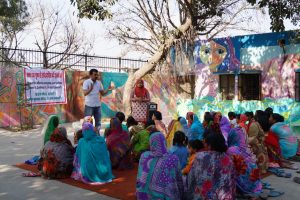You can help raise awareness and save lives…
Tell us why you think hepatitis B testing is important?
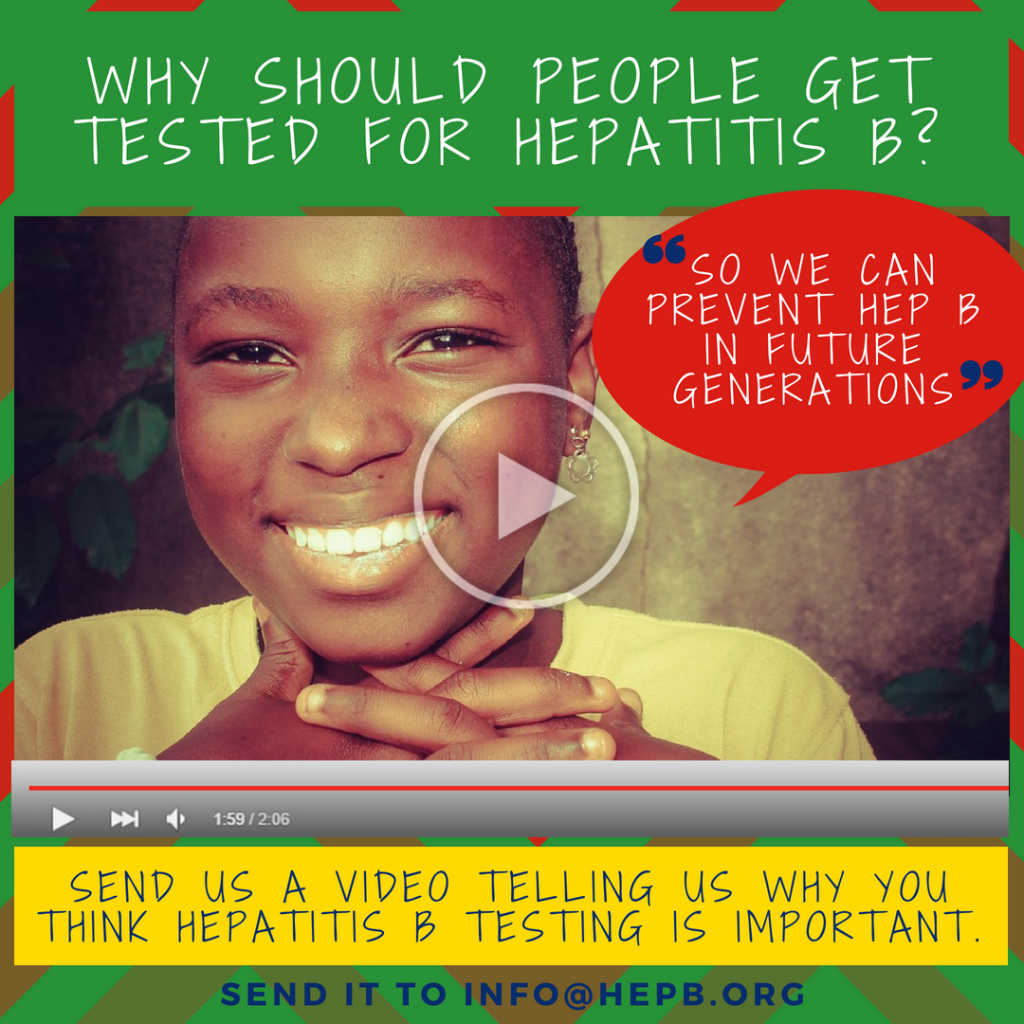
Globally, 292 million people are living with chronic hepatitis B. Only 10 percent are aware of their diagnosis. The theme for this year’s World Hepatitis Day is “Find the Missing Millions.” Help us raise awareness for World Hepatitis Day (July 28th, 2018) by telling the world why it is important to get tested for hepatitis B!
Create an awareness message about hepatitis B by answering the prompt below.The Hepatitis B Foundation will compile video entries for a larger video that will be released on World Hepatitis Day, July 28, 2018.
Who Can Enter? Anyone across the world!
Here’s how to Enter:
- Record a short video or an audio clip of yourself (15 seconds or less) answering the prompt, “People should be tested for hepatitis B because ….”
2. Note: You may choose the audio option if you wish to remain anonymous. Film yourself answering the above question. Your face and/or your picture does not have to be in the video; however, we must be able to hear you. If you choose to record an audio clip you are welcome to send a picture from your country or something that represents you.
Keep your video no longer than 15 seconds!
- Send your video to us:
- By uploading your video to our Google form(You must have a gmail account)
- By messaging us your video on Facebook
- By uploading it to our Dropbox
- By emailing it to us at info@hepb.org
- You can also email the file using wetransfer. Please ensure that you send the email to info@hepb.org.
- When you send your video, please mention that you wish to participate in the World Hepatitis Day 2018 Campaign.
Video Tips/Guidelines
- Your video must be 15 seconds or less
- Your video should be in English
Note: If your video is recorded in a language other than English, please provide the English translation. If possible, provide a timed script with timings of phrases.
- Videos must be recorded in Landscape/horizontal mode. Videos recorded in a Vertical format cannot be used.
- Record your video in a quiet area or with a microphone.
- Record your video in good lighting.
Disclaimer
By submitting a video to this campaign, participants give the Hepatitis B Foundation permission to use their videos (audio and video), in the World Hepatitis Day campaign and promotion, as well as in future hepatitis B awareness efforts. The participant will waive any claims to royalty, right, or remuneration for such use. The Hepatitis B Foundation will not disclose any personal information obtained from participants (i.e., full names, email addresses, etc.) in the campaign to third parties or use the information for marketing or other purposes.
For inspiration, visit our website, World Hepatitis Alliance’sFind the Missing Millionscampaign, and CDC’s and Hep B United’s Know Hepatitis Bcampaign.
Submission Period: You must submit your video by July 20, 2018 (Submission closes at 11:59 PM EST on 7/20/18)
Have Questions? Please contact Kristine Alarcon at kristine.alarcon@hepb.org
Additional information can be found at hepb.org/worldhepatitisday2018.


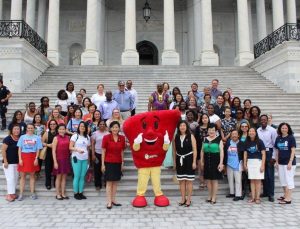
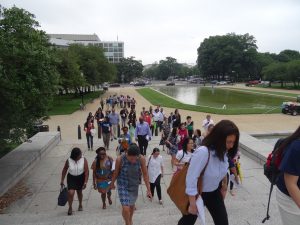
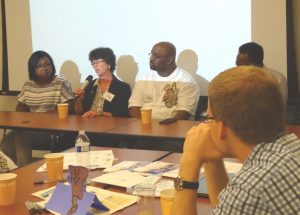
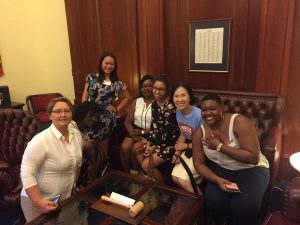
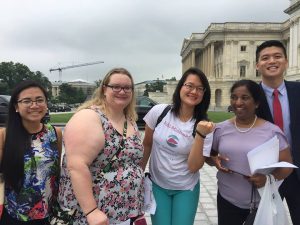

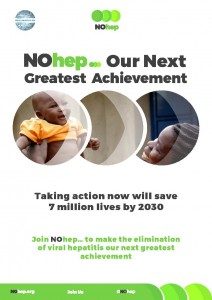 By Christine Kukka
By Christine Kukka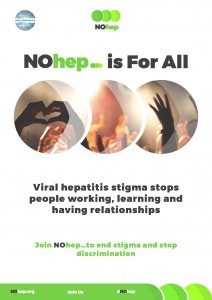 For example, between
For example, between  The annual Hep B United Summit, organized by the
The annual Hep B United Summit, organized by the 
